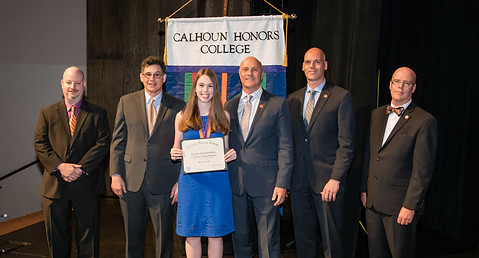Departmental Honors Thesis, Bioengineering
Clemson University, January 2017 - May 2018
The aggregation of proteins and bacteria on implant surfaces is a critical concern in the biomedical field, especially with respect to the potential of biofilm formation on implant surfaces. This study aims to investigate the impact of surface roughness and wettability on the formation of biofilms on metallic implants. Titanium coupons were CoBlasted to add a skin of either alumina or PTFE and alumina to the surface as well as change the surface roughness. BioDep™ was then used to add chitosan or chitosan and vancomycin to some of these coupons. Non-contact profilometry was used to determine the sample's initial surface topography, and then contact angle testing was performed with both deionized water and diiodomethane to determine the sample's surface energy. Protein fouling with human serum albumin (HSA) was then performed to better mimic conditions found in vivo. Contact angle testing was performed on the protein-fouled samples with both deionized water and diiodomethane to determine the surface energy of these surfaces. Statistical analysis was performed between the two sets to see how much the proteins affected the surface hydrophobicity. Titanium samples coated with PTFE were found to be the most hydrophobic in both the plain and protein-fouled experiments, while blank titanium was found to be the most hydrophilic. These results show that both CoBlast™ and BioDep™ significantly affect surface wettability and topography, and the risks and benefits from these modifications must be taken into account when assessing biofilm resistance.

Departmental Honors is a program offered by the Calhoun Honors College at Clemson University. This program allows honors students to pursue advanced research and in-depth study in their academic major. To earn honors in Bioengineering, students must complete a poster presentation, oral presentation, and written thesis on their research, as well as complete a course that teaches research planning, ethical conduct, and professional documentation of research material.
For my honors thesis, I worked with Dr. John DesJardins, Professor of Bioengineering at Clemson University, and Dr. Sarah Helms, then a Ph.D. student at Clemson University, to investigate the material characterization of metallic implants coated with a novel biofilm-resistant surface modification process.
Project Abstract